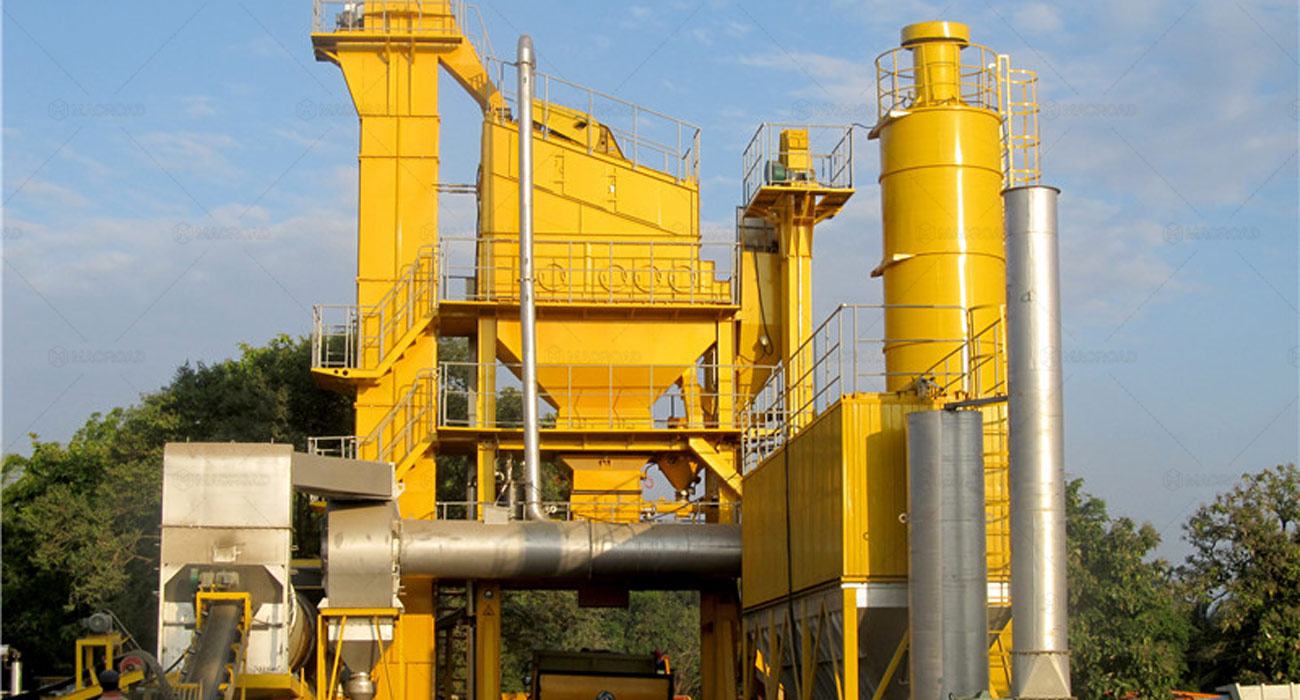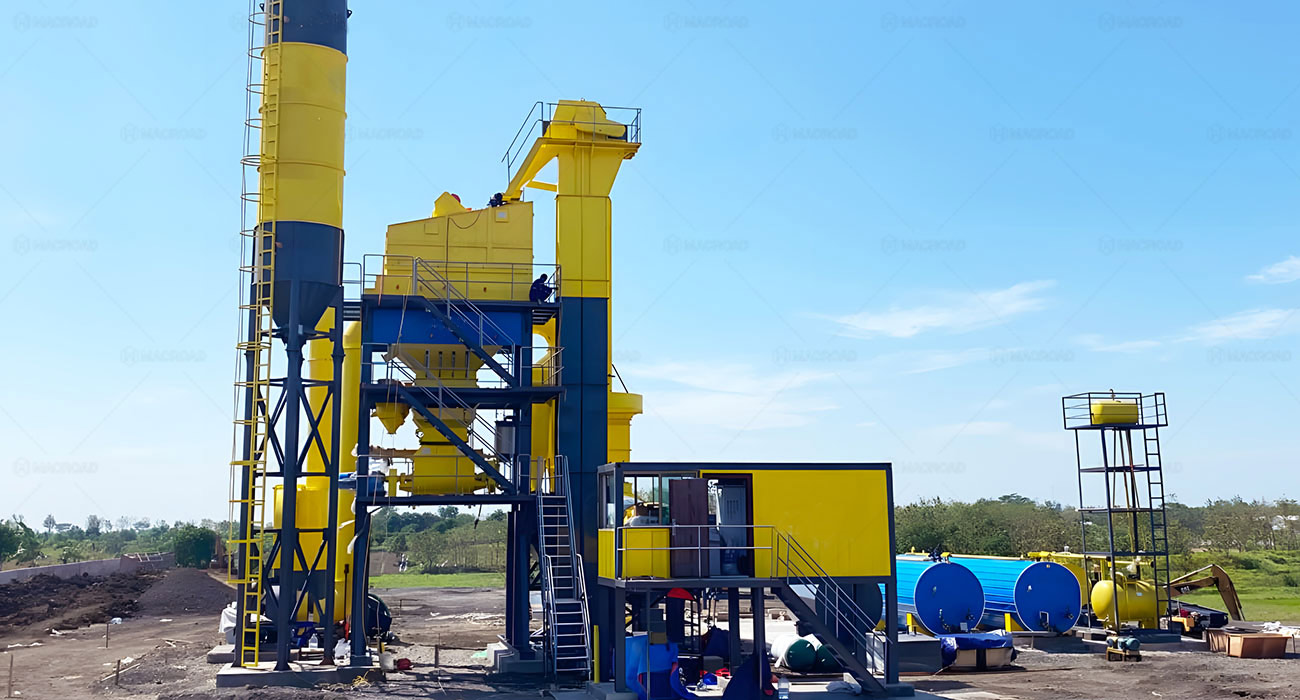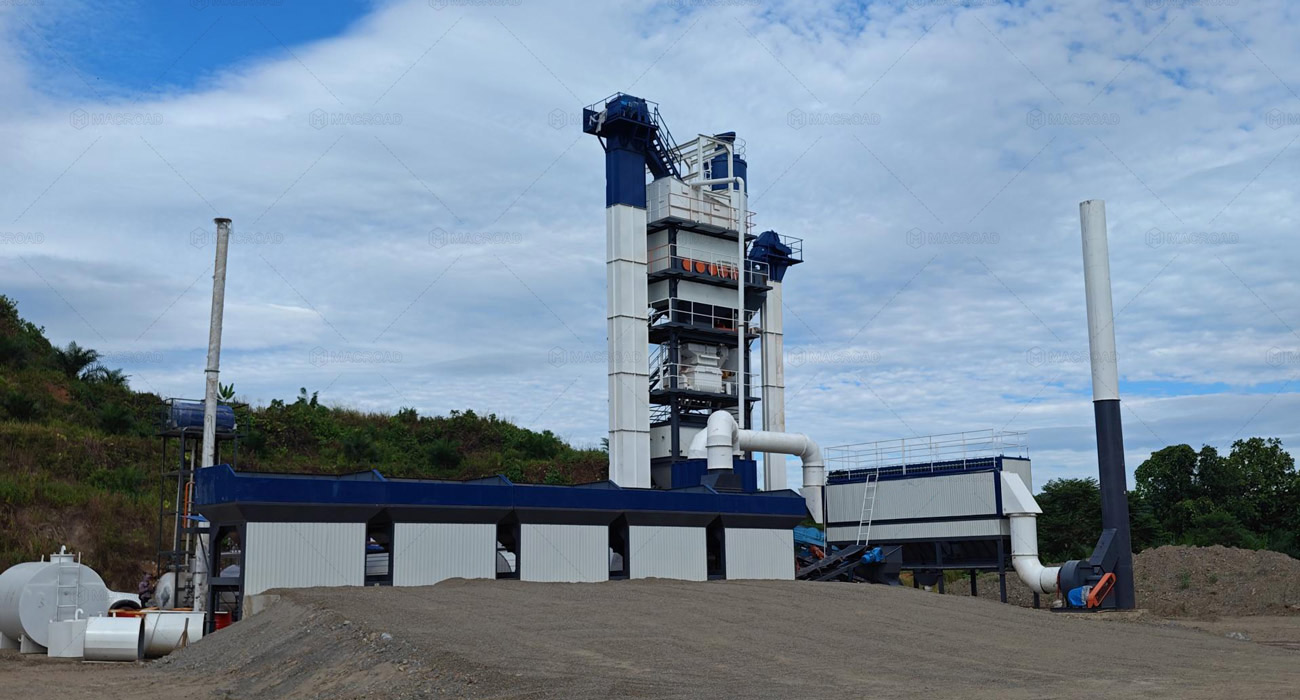5
0
0
Ensuring Stability of Asphalt Plants in Sri Lanka's Rainy Climate
Sri Lanka's tropical monsoon climate is characterized by concentrated rainfall and high humidity during the rainy season, which presents significant challenges for asphalt production. These conditions can lead to damp raw materials that agglomerate, as well as potential malfunctions in the electrical systems of equipment, particularly in mobile asphalt plants. To maintain production quality and stability, local asphalt plants in Sri Lanka must implement effective strategies that address these climate-related issues. This article explores how these plants enhance equipment protection and adjust production processes to ensure consistent asphalt quality during the rainy season.

Enhancing Equipment Protection Against Moisture
One of the primary concerns for asphalt plants operating in Sri Lanka during the rainy season is the protection of raw materials from moisture. To combat this, many local asphalt plants are installing moisture-proof sealed covers for raw material silos. These covers are designed to prevent rainwater from entering the silos, thereby minimizing the risk of raw materials becoming damp and agglomerated.
Additionally, the electrical systems of asphalt plant mobile are particularly vulnerable to humidity. To mitigate this risk, many plants are equipping their electrical control cabinets with dehumidification devices. These devices actively remove moisture from the air inside the cabinets, ensuring that sensitive electronic components operate reliably. By enhancing equipment protection in this way, asphalt plants can significantly reduce the likelihood of production disruptions caused by electrical malfunctions during the rainy season.

Adjusting Production Processes for Humidity
In addition to improving equipment protection, local asphalt plants in Sri Lanka must also adapt their production processes to accommodate high-humidity raw materials. One effective strategy is to adjust the mixing parameters during production. For instance, increasing the mixing time can help ensure that damp materials are thoroughly integrated into the asphalt mixture, promoting a more uniform consistency.
Furthermore, operators can modify the temperature of the asphalt mixture to account for the moisture content of the raw materials. By carefully controlling the mixing temperature, plants can enhance the binding properties of the asphalt, ensuring that the final product meets quality requirements even when starting with higher moisture levels. This proactive approach helps maintain the integrity of the asphalt mixture, reducing the risk of pavement construction quality issues.

Implementing Routine Maintenance and Monitoring
Routine maintenance and monitoring play a crucial role in ensuring the stability of mobile asphalt plants during Sri Lanka's rainy season. Regular inspections of equipment and systems can identify potential issues before they escalate into major problems. For example, checking seals on raw material silos and ensuring that dehumidification devices are functioning optimally can prevent moisture-related complications.
Moreover, implementing a monitoring system that tracks environmental conditions—such as humidity and temperature—can provide operators with valuable insights into how to adjust production processes in real time. This data-driven approach allows asphalt plants to remain flexible and responsive to changing conditions, further enhancing their ability to produce high-quality asphalt mixtures during challenging weather.
Training and Empowering Operators
Finally, investing in training for operators is essential for maintaining stable production in adverse weather conditions. Well-trained personnel are better equipped to understand the impacts of humidity on raw materials and adjust production parameters accordingly. This knowledge contributes to improved decision-making and operational efficiency.
Regular training sessions can also cover the importance of equipment maintenance and the use of protective measures against moisture. By empowering operators with the right skills and knowledge, asphalt plants in Sri Lanka can ensure that their teams are prepared to tackle the challenges posed by the rainy season.
Conclusion: Sustaining Asphalt Production in Adverse Conditions
In conclusion, addressing the challenges posed by Sri Lanka's tropical monsoon climate requires a multifaceted approach for asphalt plants. By enhancing equipment protection, adjusting production processes, implementing routine maintenance, and training operators, local asphalt plant in Sri Lanka can ensure that mobile asphalt plants produce stable and high-quality asphalt mixtures during the rainy season. These proactive measures not only mitigate the risks associated with climate impacts but also contribute to the overall success of road construction projects in the region.

Enhancing Equipment Protection Against Moisture
One of the primary concerns for asphalt plants operating in Sri Lanka during the rainy season is the protection of raw materials from moisture. To combat this, many local asphalt plants are installing moisture-proof sealed covers for raw material silos. These covers are designed to prevent rainwater from entering the silos, thereby minimizing the risk of raw materials becoming damp and agglomerated.
Additionally, the electrical systems of asphalt plant mobile are particularly vulnerable to humidity. To mitigate this risk, many plants are equipping their electrical control cabinets with dehumidification devices. These devices actively remove moisture from the air inside the cabinets, ensuring that sensitive electronic components operate reliably. By enhancing equipment protection in this way, asphalt plants can significantly reduce the likelihood of production disruptions caused by electrical malfunctions during the rainy season.

Adjusting Production Processes for Humidity
In addition to improving equipment protection, local asphalt plants in Sri Lanka must also adapt their production processes to accommodate high-humidity raw materials. One effective strategy is to adjust the mixing parameters during production. For instance, increasing the mixing time can help ensure that damp materials are thoroughly integrated into the asphalt mixture, promoting a more uniform consistency.
Furthermore, operators can modify the temperature of the asphalt mixture to account for the moisture content of the raw materials. By carefully controlling the mixing temperature, plants can enhance the binding properties of the asphalt, ensuring that the final product meets quality requirements even when starting with higher moisture levels. This proactive approach helps maintain the integrity of the asphalt mixture, reducing the risk of pavement construction quality issues.

Implementing Routine Maintenance and Monitoring
Routine maintenance and monitoring play a crucial role in ensuring the stability of mobile asphalt plants during Sri Lanka's rainy season. Regular inspections of equipment and systems can identify potential issues before they escalate into major problems. For example, checking seals on raw material silos and ensuring that dehumidification devices are functioning optimally can prevent moisture-related complications.
Moreover, implementing a monitoring system that tracks environmental conditions—such as humidity and temperature—can provide operators with valuable insights into how to adjust production processes in real time. This data-driven approach allows asphalt plants to remain flexible and responsive to changing conditions, further enhancing their ability to produce high-quality asphalt mixtures during challenging weather.
Training and Empowering Operators
Finally, investing in training for operators is essential for maintaining stable production in adverse weather conditions. Well-trained personnel are better equipped to understand the impacts of humidity on raw materials and adjust production parameters accordingly. This knowledge contributes to improved decision-making and operational efficiency.
Regular training sessions can also cover the importance of equipment maintenance and the use of protective measures against moisture. By empowering operators with the right skills and knowledge, asphalt plants in Sri Lanka can ensure that their teams are prepared to tackle the challenges posed by the rainy season.
Conclusion: Sustaining Asphalt Production in Adverse Conditions
In conclusion, addressing the challenges posed by Sri Lanka's tropical monsoon climate requires a multifaceted approach for asphalt plants. By enhancing equipment protection, adjusting production processes, implementing routine maintenance, and training operators, local asphalt plant in Sri Lanka can ensure that mobile asphalt plants produce stable and high-quality asphalt mixtures during the rainy season. These proactive measures not only mitigate the risks associated with climate impacts but also contribute to the overall success of road construction projects in the region.
Signatur